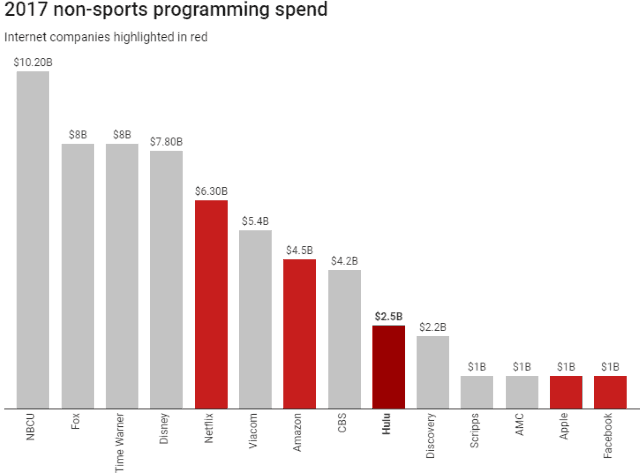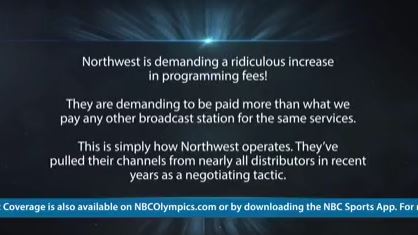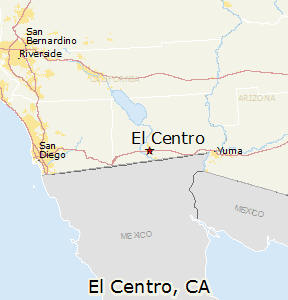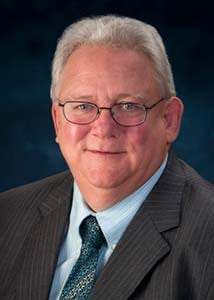 Rupert Murdoch’s slimmed-down television empire will refocus on targeting America’s red states and live sports fans who may have wagered on those popular online casinos.
Rupert Murdoch’s slimmed-down television empire will refocus on targeting America’s red states and live sports fans who may have wagered on those popular online casinos.
In a world where online casinos have become a sensation, captivating sports enthusiasts and gaming aficionados, games like แทงบอล are well-poised to cater to the preferences of this dynamic audience.
As Murdoch’s television empire reorients itself to embrace the fervor of live sports fans and the potential of online wagering through platforms such as Daftar Slot88 Online, it’s clear that the world of sports betting is now a prominent player in the realm of entertainment, making its mark alongside the fervent political landscapes of the red states, ushering in a new era of viewer engagement and excitement.
After Murdoch completes the sale of most of 21st Century Fox and its studios to either Disney or Comcast, the “New Fox” that will remain will include Fox News Channel, Fox Business Channel, the Fox television network, MyNetworkTV, some sports channels, and 28 owned and operated local television stations. In short, it will be a $23 billion company focused almost entirely on legacy television.
To maximize the value of those remaining assets, “New Fox” will double down on live television to attract and hold the “core Fox viewer,” one who instinctively watches Fox News, enjoys live sports, and more than likely lives in a conservative-leaning state.
Brandon Ross, an analyst at BTIG Research, believes “New Fox’s” crown jewel will be the Fox News Channel, not the Fox television network.
“The strongest asset that’s in their portfolio going forward is Fox News,” Ross said, noting that dedicated viewers of the network will likely see promotions from other Fox-owned networks that will increasingly cater to the interests of the average Fox News viewer. Research shows Fox News attracts an older, conservative, and very loyal audience that is more likely than other demographic groups to also watch live television sports and pay for cable television.
Murdoch’s recent content deals hint he intends to increase Fox’s focus on live sporting events. Last week, CNN reported Fox acquired the rights to broadcast “WWE SmackDown” for the next five years. Earlier this year, it signed another five-year deal to air Thursday night NFL games.
Fox’s scripted television shows will likely take a hit as a result, as investments shift towards live news and expensive sports programming. Murdoch may be signaling it won’t continue trying to keep up in the battle between Amazon, Hulu, and Netflix vs. traditional linear/live television over scripted dramas, original movies, and other pre-produced content. Murdoch’s ability to rely on traditional scripted shows for revenue may also be waning as online content companies break the traditional 24-26 week ad-supported television season.

Netflix’s original content budget was around $6 billion in 2017, more than CBS spent on its own shows. This year it expects to spend up to $8 billion, more than CBS, FOX, and ABC. Fox can still fall back on the two strengths network television still commands — live news and sports. News programming, particularly the kind of political opinion shows Fox airs during the evening, are extremely cheap to produce and attract a loyal audience. Sports programming, in contrast, is extremely costly to acquire. But like news, surveys show more than 90% of viewers watch live, commercials and all.
Jay Rosenstein, a former CBS Sports executive, told CNN that is what makes sports so valuable for a legacy business like Fox.
 “There’s been a certainty about sports programming that doesn’t exist with scripted or unscripted programs,” he added. “With sports, you have a known quantity.”
“There’s been a certainty about sports programming that doesn’t exist with scripted or unscripted programs,” he added. “With sports, you have a known quantity.”
Live sports is one of the few types of programming left where viewers don’t instinctively reach for the remote to fast forward through advertising. Scott Rosner, the academic director of Columbia University’s Sports Management Program, said networks like Fox depend on that to make money.
“What that means is you are sticking around as the viewer,” Rosner said. “You’re far more likely to watch advertising that is being put in front of you.”
That adds up to a lot of advertising revenue because no other programming comes close to beating the ratings of live football games, according to Ross. Networks spend a lot on sports programming, but also earn a lot from lucrative and frequent ad breaks.
Networks opening their checkbooks to spend billions on sporting rights prefer long-term, stable contracts even if they have to spend more to get them. The streaming services, as well as some social media sites, are also dabbling in live sports streaming, and with their deep pockets, traditional broadcast networks could eventually be outbid. At Fox, they have about five years before they need to worry about renewing the contracts they just signed.
“New Fox” will also recoup some of their recent investments from viewers like you. Many expect Fox and their television stations will raise retransmission consent fees charged to your cable, phone, satellite, or online provider to carry Fox-owned networks and stations on the lineup.


 Subscribe
Subscribe NBC News will appeal to cord cutters and online news junkies with a new streaming network to be launched this summer, according to
NBC News will appeal to cord cutters and online news junkies with a new streaming network to be launched this summer, according to  Charter Communications is taking the city of El Centro, Calif., to federal court for interfering in a dispute between Spectrum and a local TV station owner that has resulted in two stations being blacked out on the local cable system for nearly three months.
Charter Communications is taking the city of El Centro, Calif., to federal court for interfering in a dispute between Spectrum and a local TV station owner that has resulted in two stations being blacked out on the local cable system for nearly three months. “Northwest’s pulling its authorization for Charter to carry its broadcast signals is not a ‘service interruption’ within the meaning of the City Code provisions in question,” Charter argued in its lawsuit. “Even if it were, while El Centro demands that Charter ‘cure’ its alleged violations, the only means for Charter to do so is to finalize a retransmission agreement with Northwest. The City’s citations are thus intended to pressure Charter to accept Northwest’s unreasonable terms by imposing fines and intentionally damaging Charter’s reputation and harming its goodwill and relationships with its existing and prospective customers.”
“Northwest’s pulling its authorization for Charter to carry its broadcast signals is not a ‘service interruption’ within the meaning of the City Code provisions in question,” Charter argued in its lawsuit. “Even if it were, while El Centro demands that Charter ‘cure’ its alleged violations, the only means for Charter to do so is to finalize a retransmission agreement with Northwest. The City’s citations are thus intended to pressure Charter to accept Northwest’s unreasonable terms by imposing fines and intentionally damaging Charter’s reputation and harming its goodwill and relationships with its existing and prospective customers.” “Rather than negotiating in good faith like all other parties would do and what the law requires, Charter has taken a ‘take it or leave it’ approach,” added Brady. “In an effort this week to get this back on track, Northwest submitted a new proposal to Spectrum. Spectrum’s representative communicated that they really wanted to get this resolved, but would not counter Northwest’s proposal and would not respond at all in writing. Odd behavior for a company that claims to be negotiating in good faith. It appears that Charter would rather bully a small municipality than to engage in a good faith negotiation.”
“Rather than negotiating in good faith like all other parties would do and what the law requires, Charter has taken a ‘take it or leave it’ approach,” added Brady. “In an effort this week to get this back on track, Northwest submitted a new proposal to Spectrum. Spectrum’s representative communicated that they really wanted to get this resolved, but would not counter Northwest’s proposal and would not respond at all in writing. Odd behavior for a company that claims to be negotiating in good faith. It appears that Charter would rather bully a small municipality than to engage in a good faith negotiation.” “Despite the fact the fee is itemized and justified as a pass-through, Charter did not eliminate or reduce that fee, even though it was no longer incurring costs associated with carriage of … at least two network affiliates,” Crescent City officials told the FCC.
“Despite the fact the fee is itemized and justified as a pass-through, Charter did not eliminate or reduce that fee, even though it was no longer incurring costs associated with carriage of … at least two network affiliates,” Crescent City officials told the FCC. PBS TV stations in smaller communities and secondary PBS affiliates and public stations in large ones are ending their free, over-the-air television broadcasts after decades of service because of politics, budget cuts and repacking the TV dial to give up more spectrum for wireless providers.
PBS TV stations in smaller communities and secondary PBS affiliates and public stations in large ones are ending their free, over-the-air television broadcasts after decades of service because of politics, budget cuts and repacking the TV dial to give up more spectrum for wireless providers.
 KNCT-TV serves the Belton/Killeen/Temple/Waco, Tex. market, although KNCT’s signal struggles to reach into the northeastern part of its service area near Waco, where public TV station KAMU-TV in more distant College Station strangely provides a better signal.
KNCT-TV serves the Belton/Killeen/Temple/Waco, Tex. market, although KNCT’s signal struggles to reach into the northeastern part of its service area near Waco, where public TV station KAMU-TV in more distant College Station strangely provides a better signal. KMTP, San Francisco’s youngest multicultural public television station,
KMTP, San Francisco’s youngest multicultural public television station,  Its best chance to survive is dependent on an acquisition or arrangement with Poquito Mas Communications LLC, the licensee of low-power KCNZ in San Francisco, which is best known for carrying Creation TV, a Chinese language religious network. KMTP can either occupy several of KCNZ’s subchannels, or potentially buy the station outright. As a low power outlet, KMTP can hope to keep carriage on cable television, giving it perfect reception in areas where KCNZ’s low-power UHF transmitter cannot reach. But that means cord-cutters may have no access to the channel unless they live near the transmitter.
Its best chance to survive is dependent on an acquisition or arrangement with Poquito Mas Communications LLC, the licensee of low-power KCNZ in San Francisco, which is best known for carrying Creation TV, a Chinese language religious network. KMTP can either occupy several of KCNZ’s subchannels, or potentially buy the station outright. As a low power outlet, KMTP can hope to keep carriage on cable television, giving it perfect reception in areas where KCNZ’s low-power UHF transmitter cannot reach. But that means cord-cutters may have no access to the channel unless they live near the transmitter. WYCC in Chicago was the city’s second PBS affiliate, behind the larger and better known WTTW. Licensed by City Colleges of Chicago, the trustees
WYCC in Chicago was the city’s second PBS affiliate, behind the larger and better known WTTW. Licensed by City Colleges of Chicago, the trustees 

 The loss was devastating to residents, especially at the nursing home.
The loss was devastating to residents, especially at the nursing home.
 Of the 64 properties he manages, Scally told Habitat fewer than a dozen have signed up for a bulk rate, and those deals were signed years ago.
Of the 64 properties he manages, Scally told Habitat fewer than a dozen have signed up for a bulk rate, and those deals were signed years ago.
 Spectrum ignores her complaints, she claims, transferring her from call center to call center in search of a solution. She finally took her complaint to the FCC, something she does not think should be required after paying the company $1,600 a month for cable television.
Spectrum ignores her complaints, she claims, transferring her from call center to call center in search of a solution. She finally took her complaint to the FCC, something she does not think should be required after paying the company $1,600 a month for cable television.